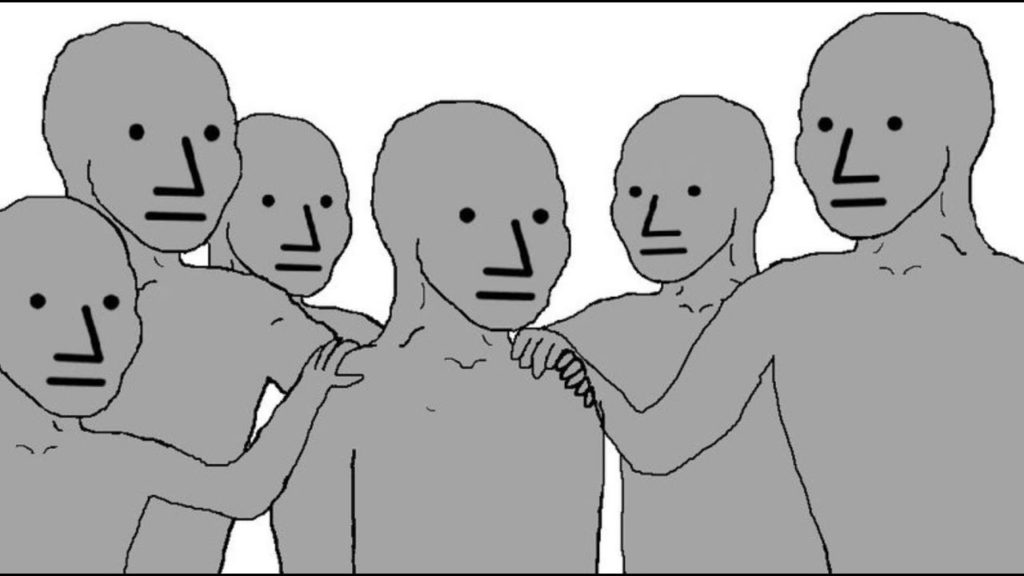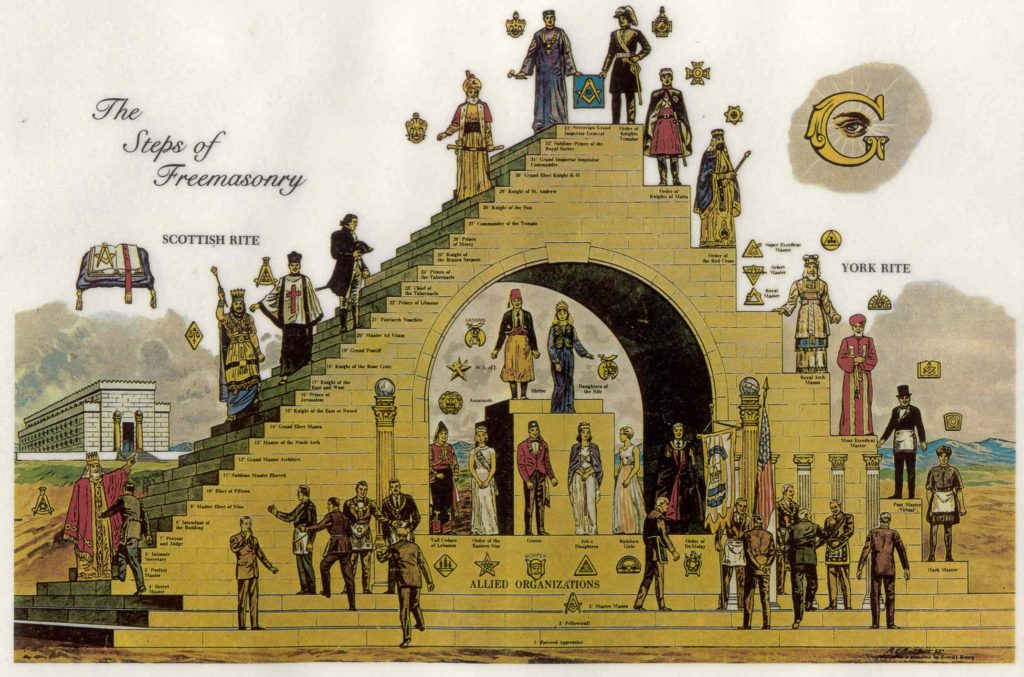
Christianity first became popular among the slave classes of ancient Rome. These wretches found an outlet for their resentment in the slave cult that told them the world was evil, and that those who liked it were doomed to everlasting punishment. Christianity ended up destroying the Western World then, and it threatens to do so again now.
It has long been understood that only people who hate life become Christians. Only the sadomasochistic or the deranged would follow a slave cult that promises pleasure in the afterlife in exchange for enduring suffering in this one. Despite that, there are a large number of Christcucks in Clown World, and their collective nature causes suffering for all.
‘Cuck’ is short for ‘cuckold’, which means a man whose wife has sex with other men. It’s a synonym for ‘weakling’ or ‘faggot’, i.e. an excessively feminine man. Cuck has become the archetypal Clown World insult, owing to the fact that we are in the “weak man” part of the historical cycle.
A ‘Christcuck’, then, is a man who has been spiritually cuckolded by the priesthood of the Christian religion. In the same way that a regular cuck is less than a full man on account of that he is subject to the will of his bull, the Christian is less than a full man on account of that he is subject to the will of his priest.
Although decent Christians can and do exist, the common sentiment among sane people in Clown World is that Christians are much like cuckolds. This comparison is made for two major reasons.

The first reason is that they are shamefully weak, and in a way that causes others to suffer.
In the same way that a cuckold invites strange men into his wife, destroying his family, the Christcuck invites strange men into his nation, destroying his community. The universalist creed of Christianity declares that “there is neither Jew nor Greek”, and the Christcuck takes that to mean that borders are against the will of God.
This has resulted in strong Christcuck support for refugee and migrant resettlement. Christian lobby groups are at the forefront of efforts to increase refugee quotas. These refugees and migrants then go on to commit horrendous amounts of violence and sex crimes, causing everyone to suffer – and all just so that the Christcuck can virtue signal.
The Christcuck makes a virtue out of being as pathetic as possible. They act as if their harmlessness made them morally superior to normal people, much like cuckolds argue that their lack of jealousy makes them morally superior to others. They are rightly despised for this, on account of that the absence of masculinity is responsible for most of Clown World’s misery.
The second reason why Christians are compared to cuckolds, and the most appropriate to Clown World, is that Christcucks are grossly dishonest, and that this dishonesty is a major cause of why there’s so much suffering today.
Regular cuckolds go through a massive amount of cognitive dissonance on account of that other men fuck their wives. This dissonance twists them into untrustworthy creatures. Cuckolds lie to themselves and to other people all the time – and so do Christcucks.
Christcucks virtue signal all day, but when an opportunity comes along to actually prevent suffering they don’t take it. Constantly we are told that Jesus is compassion and therefore his followers are the good guys, but when Christians are given an opportunity to show compassion they do nothing. The modern Christcuck supports the War on Drugs, welfare austerity and Middle Eastern military adventurism.
They also attribute the greatness of Western culture to their slave cult, and not to inherent qualities of Westerners. This belief is proven false in two ways. Western culture was great before Christianity, as Socrates, Plato, Aristotle, Alexander, Julius Caesar and Augustus Caesar showed. Moreover, other peoples who have become Christian didn’t become great, as shown by the numerous poverty-riddled African Christian nations.
Perhaps worst of all, they lie about genuine spiritual practices in an effort to keep people dumb and deluded. Not only do Christians lie about meditation, claiming that it can induce demonic possession, but they also lie about cannabis, psilocybin, LSD, mescaline and DMT, claiming that these spiritual sacraments are drugs that cause mental illness. These efforts to keep people spiritually deluded have created immense suffering.
Christcuckery is best exemplified today by Pope Francis. Normally hidden away behind gigantic stone walls, he emerges to lecture Westerners about the need to open borders to refugees, or about climate change. Never does he suggest anything practical, like ending the War on Drugs or the need to study hard at school, because he’s not interested in alleviating anyone’s suffering. Much the opposite.
Christcucks belong in the same group as soyboys, baizuos, incels, dhimmis, trannies, simps, NEETs and gutmenschen as another example of social decay, which is why they’re seen ever more often in today’s Clown World. The common quality linking them all is a lack of rectitude manifesting as weakness and effeminacy.
They contribute directly to the shitness of Clown World by promoting a mindset where people sit and wait for a saviour, instead of taking action themselves. They believe that if they wait long enough Jesus will come along and solve all their problems. As such, it’s not necessary to resist those abusing them. Most of the time, when you have people getting abused yet saying “It’s not time to act yet,” you have the influence of Christcuckery. The meek shall inherit Clown World.
The solution to Christuckery is an occult revival. This might involve a return of Hermeticism, or a new interpretation of the perennial philosophy, or perhaps even an attempt to institute a new Eleusinian Mysteries. Whichever precise form it takes, it will come as a great relief to the multitudes who are currently starved of spiritual nourishment.
*
This article is an excerpt from Clown World Chronicles, a book about the insanity of life in the post-Industrial West. This is being compiled by Vince McLeod for an expected release in the middle of 2020.
*
If you enjoyed reading this essay, you can get a compilation of the Best VJMP Essays and Articles of 2019 from Amazon for Kindle or Amazon for CreateSpace (for international readers), or TradeMe (for Kiwis). A compilation of the Best VJMP Essays and Articles of 2018 and the Best VJMP Essays and Articles of 2017 are also available.
*
If you would like to support our work in other ways, please consider subscribing to our SubscribeStar fund. Even better, buy any one of our books!





